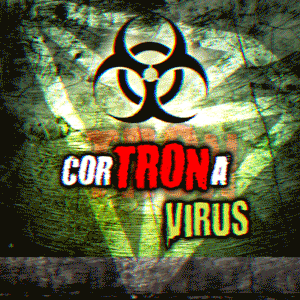
What is Layer Zero?
There seems to be some debate. In fact there is even a literal token and network called LayerZero to further confuse the issue.
LayerZero is an interoperability protocol that connects blockchains (50+ and counting), allowing developers to build seamless omnichain applications, tokens, and experiences.
Layer-0 protocols are the infrastructure that customised Layer-1 blockchains are built on.
Layer 0 blockchain networks represent the base infrastructure and serve as the most crucial component to support blockchain networks
Layer 0 refers to the foundational layer of a blockchain network, the first layer of all blockchain protocols.
Whatever the specific opinion happens to be, the overall consensus is that Layer Zero is the thing that Layer One is built atop. Here inside the Hive Swarm we happen to define Layer Zero as the actual community itself. How could it not be? The protocol is nothing without the people. The people make the protocol.
This is a concept that most networks have never had to grapple with because most networks have never endured a hostile takeover. Communities tend to scatter in the wind when confronted with the face of hardship, or accept their servitude to the foundation that governs them. Will the preminers and vulture capitalists of the crypto world continue to force the hands of the underlying communities into make hard decisions? I must assume this is inevitable given the current landscape of institutional adoption going forward.

Not for sale
The truly interesting thing about crypto is that many are still applying the old way of thinking onto it. This type of projection allows one to believe that the brand, intellectual property, and even the people can be owned. Certainly there is a bit of truth to this perspective which is why it is so easy to believe, but it does have severe limits. The true meaning of opt-in governance has yet to be fully understood in these early phases.
"Code is Law"
Take the whole code-is-law mantra for example. This is a purist ideology; it comes from a place of idealism and entitlement. The mark of a person that's never had to make the tough choices. High horse.
Never rollback the chain under any circumstances. When something goes bad accept it and move on. If there is a flaw in the code that someone exploits... it doesn't matter as long as the bad actor played by the rules that we provided to them.

This idea is, of course, nonsensical. Even Bitcoin had a bug at one point that allowed infinite coins to be minted. Consensus is a tightrope or a game of tug of war. The sides have to be balanced or the game itself is pointless. Placing one variable above all the rest is not a robust solution.
Immutability
Is it a feature, or is it a bug? The answer is: both. Not being able to change an error is quite annoying, but then again so it not being able to silence someone who is saying things we don't like. Immutability goes hand in hand with freedom-of-speech.
Even value transfer using money is a form of communication between two peers. It's a universal language even; one that everyone in the world understands. We can hand a $100 bill to anyone on the planet and they know what just happened, even if they can't read what it says on the paper.
So what's more important?
Making sure a bad actors can't fudge the numbers for their own benefit, or forcing people to accept the immutable nature of value transfer? That's certainly up for debate, but the very reason why crypto exists is that the power to manipulate the ledger simply invites too much corruption. In most cases it would seem that the ends no longer justify the means. Being able to correct a mistake would be great if we can trust the people in charge of correcting mistakes. These people have proven that they can't be trusted. Many many many times over. This is how we got here.

But there certainly are exceptions.
Like when a vulture capitalist buys out your foundation and then floats rumors about merging and liquidating everything into their own network. Then they refuse to talk with the most trusted members of the community, instead opting to call them "hackers" while tricking the top three exchanges to stake customer funds to attack their client's own investment.
Yeah, that one was a bit of an outlier. Immutability wasn't quite as important there. But hey we didn't actually rollback the blocks now did we? We just changed the ones going forward... losing the brand in the process so technically from a WEB2 legal perspective it wasn't even the same token. These are the laws of WEB3, and they are very much self-sovereign by design.
Conclusion
Layer Zero is that thing that Layer One is built over the top. Consensus isn't just a codebase. The community has to agree, and the community can change its mind whenever it wants. Of course there is always a price to be paid for such whimsy, but sometimes we do what we have to in order to survive another day. Nobody said coming to agreement would be easy.
